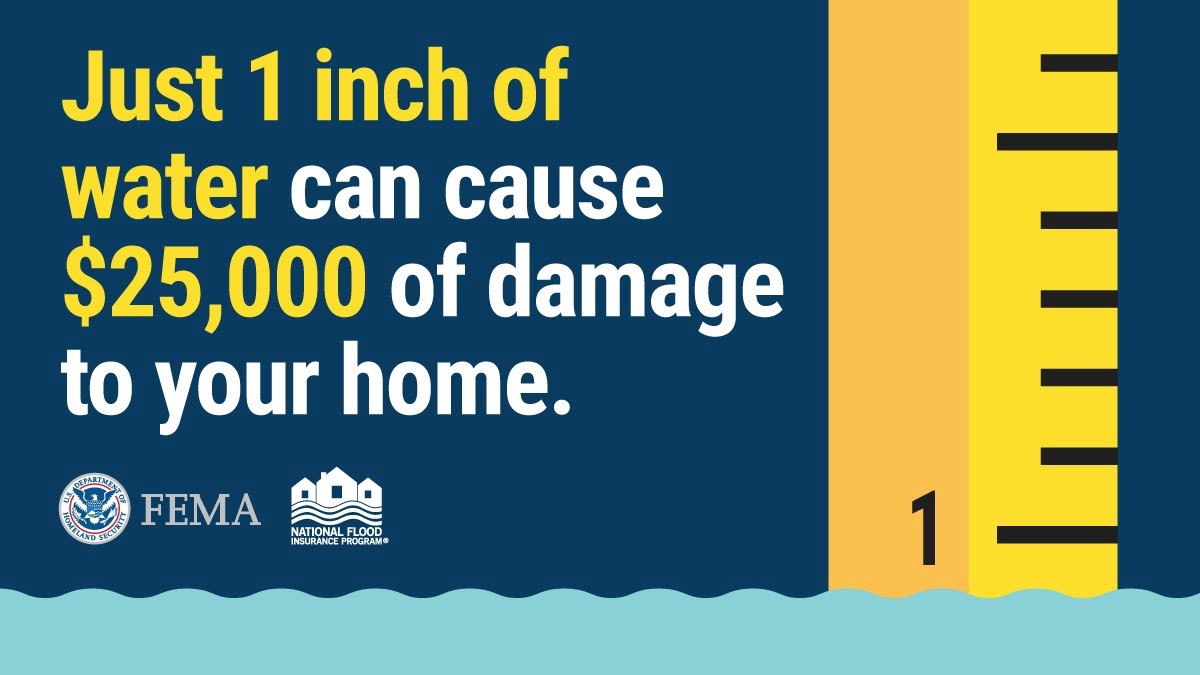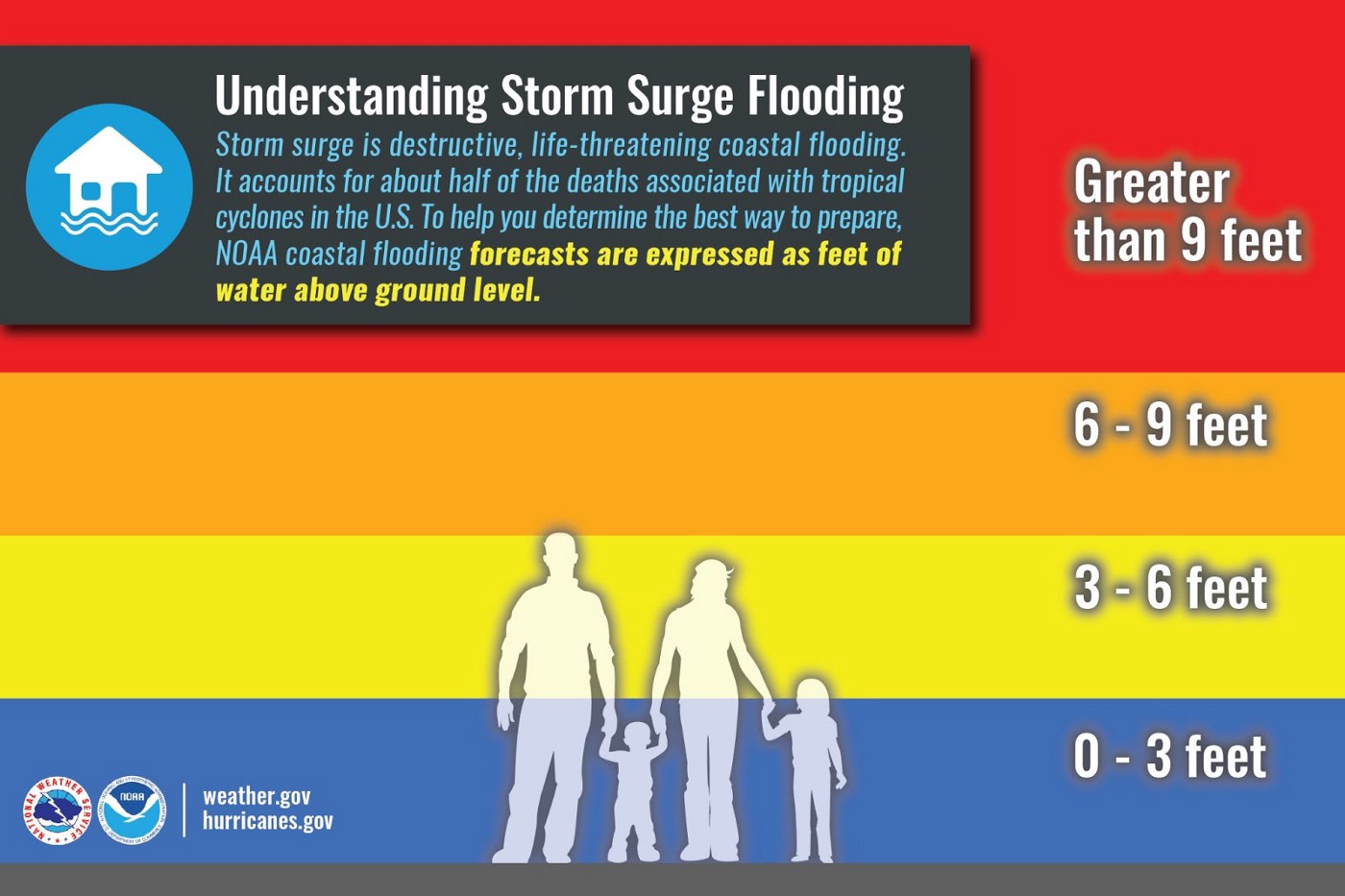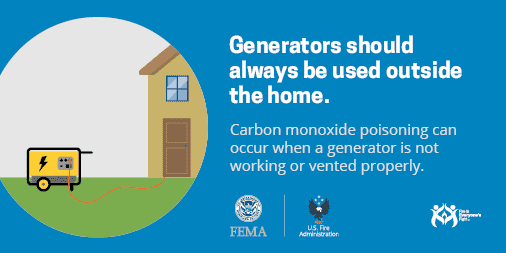Hurricane season is underway, and residents will be turning to your agency for trusted, real-time information before, during, and in the immediate aftermath of a hurricane. Consider reaching out to the community now — before storm activity intensifies — with posts on hurricane preparedness.
Polls and prompts are proven ways to engage the community while providing helpful tips and resources. Consider sharing one or more of the following suggested posts (full post copy below):
- Poll: Do you have a hurricane evacuation plan in place?
- Poll: Do you know the 5 major hurricane hazards?
- Poll: Does your insurance policy cover flooding?
- Poll: Have you assembled an emergency bag for hurricane season?
- Safety post: What you need to know about storm surge
- Safety post: Protect your property from storm surge
- Safety post: Life-saving tips for using a generator safely
Here are instructions for posting:
- Copy and paste the text below.
- Click the “download the photo” link and save it to your computer.
- Sign in to your Nextdoor for Public Agencies page (or reset your password).
- Post the poll, along with the image (if applicable), to your entire service area.
- If you are having other issues, please visit our help center.
Poll 1: Do you have a hurricane evacuation plan in place?
For “Question”: Do you have a hurricane evacuation plan in place?
For “Description”:
You may need to leave your home quickly if a hurricane evacuation order is issued. Do so safely by planning ahead and following the steps below:
✅ Map out primary and alternate evacuation routes
✅ Know your evacuation zone
✅ Identify a safe place to go, such as a friend’s home or shelter
✅ Prepare a grab-and-go bag
✅ Have a family communication plan in case you become separated
✅ Practice the plan with your family and pets
Find evacuation routes near you by checking the website of your state’s Department of Transportation or Office of Emergency Management website. And if you’re told to evacuate, do so immediately. If you stay, you will put your life and the lives of first responders at risk.
Get more tips on planning an evacuation at https://www.ready.gov/evacuation and find your evacuation zone at https://flash.org/pdf/2020_Hurricane_Evacuation_Zones.pdf.
Based on the list above, do you have a reliable emergency evacuation plan?
For “Add a choice”:
- Yes, I do
- No, I do not
- Not yet, but I’m working on it
Poll 2: Do you know the 5 major hurricane hazards?
For “Question”: Do you know the 5 major hurricane hazards?
For “Description”:
Hurricanes are among the most powerful and destructive natural phenomena — and this hurricane season is forecast to be more active than usual. Having a better understanding of the primary hazards can help you determine your risk and make more informed decisions about what actions to take when a storm is approaching.
Below are the primary threats to life and property, according to the National Hurricane Center:
🌊 Storm surge: The abnormally high water generated by a hurricane’s winds can reach heights of more than 20 feet and travel tens of miles inland.
🌧 Heavy rainfall and inland flooding: The wet conditions may result in deadly and destructive floods. Flooding of rivers and streams can last for several days.
💨 High winds: The catastrophic impact of hurricane-force gusts, 74 mph or greater, can destroy buildings and turn debris and other items into high-speed projectiles.
🏊♂️ Rip currents: These powerful, channeled currents can pull the strongest swimmers away from shore, even when the storm is far from the coast.
🌪 Tornadoes: Hurricanes and tropical storms can produce tornadoes, typically well out from the eye of the storm.
For more information, please visit https://www.nhc.noaa.gov/prepare/hazards.php.
How many of the hurricane hazards above were you aware of?
For “Add a choice”:
- All of them
- I was familiar with 3–4
- Not many, I knew 2 or fewer
Poll 3: Does your insurance policy cover flooding?

Click here to download the image
For “Question”: Does your insurance policy cover flooding?
For “Description”:
Most standard homeowners’ insurance policies do not cover property damage caused by hurricanes and floods. You will often need a separate policy for flooding and, depending on the state, windstorm damage. If you live in a hurricane-prone area, review your insurance policy and deductible before the 2021 season ramps up.
What you should know:
➤ Flood insurance is available on the private market and through the National Flood Insurance Program (https://www.floodsmart.gov/), which is managed by the Federal Emergency Management Agency.
➤ Ensure you have enough coverage to fully cover the cost of rebuilding your home and replacing your possessions.
➤ Most flood insurance policies carry a 30-day waiting period, so plan ahead.
➤ Renters can purchase flood insurance, too, which will cover your personal property and contents.
Do you have coverage for hurricane-related flooding?
For “Add a choice”:
- Yes, it’s covered by my homeowners’ insurance
- Yes, I have a separate flood insurance policy
- No, I do not have coverage for flooding
- I’m not sure
Poll 4: Have you assembled an emergency bag for hurricane season?
For “Question”:
Have you assembled an emergency bag for hurricane season?
For “Description”:
Following a record 2020 with 30 named storms, NOAA’s Climate Prediction Center is forecasting an above-normal Atlantic hurricane season for 2021. Don’t get caught off guard: It’s critical that you and your family are prepared in advance if the need to evacuate arises. Safety experts recommend having a readily accessible emergency to-go kit that contains the necessities.
Here are some basic items you should have on hand:
🥫 Water and non-perishable food
📄 Copies of important documents
🔦 Flashlight and batteries
💊 First aid kit and medications
📱 Cell phones with chargers
📻 Radio (hand crank or battery powered)
🧻 Personal hygiene items
🗺 Local maps
👕 Change of clothes
Based on the list above, do you have a fully stocked disaster to-go bag? (To learn more, visit Ready.gov/kit.)
For “Add a choice”:
- Yes — I have everything I need
- Sort of — I have some of the supplies I need, but not all
- Not really — I’m not very prepared, but I plan to stock up
- No — I don’t keep any emergency supplies at home
Safety post 1: What you need to know about storm surge

Click here to download the image
Subject field:
What you need to know about storm surge
Body text:
The biggest killer during tropical storms and hurricanes is storm surge — the fast and dangerous flooding caused by powerful winds. A mere 6 inches of fast-moving flood water can knock over an adult. It takes only 2 feet of rushing water to carry away most vehicles, including pickups and SUVs.
Storm surge can cause water levels to rise quickly and flood large areas, sometimes in just minutes, and you could be left with no time to take action if you haven’t already evacuated. During the peak of a storm surge event, it is unlikely that emergency responders will be able to reach you if you are in danger.
Surge flooding can occur before, during, or after the center of the storm passes through an area and can sometimes cut off evacuation routes, so do not delay leaving if an evacuation is ordered for your area. To protect yourself and your family, make a plan now: Know your evacuation zone, evacuation route, and have a safe destination in mind before a hurricane threatens.
If you live in a hurricane-prone area, check the National Hurricane Center’s maps (https://www.nhc.noaa.gov/nationalsurge/) to evaluate your risk for storm surge.
Safety post 2: Protect your property from storm surge
Subject field: Protect your property from storm surge
Body text:
Storm surge is often the greatest threat to life and property from a hurricane. It can cause catastrophic damage to homes and other structures and is the main culprit behind flooding.
Here are the 10 most important steps you can take to mitigate risk and prepare:
✅ Declutter drains and gutters
✅ Install sewer backflow valves
✅ Anchor fuel tanks
✅ Consider hurricane shutters
✅ Secure or bring in objects outside the home
✅ Trim or remove damaged trees
✅ Seal cracks and gaps on your home
✅ Reinforce your garage door
✅ Review insurance policies
✅ Document your belongings
If you have other tips, add them in the comments. Please also consider sharing this safety message via the “Share” button below.
Safety post 3: Life-saving tips for using a generator safely

Click here to download the image
Subject field: Life-saving tips for using a generator safely
Body text:
In the aftermath of a hurricane, millions of households and businesses can be without electricity for days, leading many to turn to portable generators. Carbon monoxide poisoning from generator misuse can be deadly. Even those exposed to low concentrations of the colorless, odorless gas can experience long-term health problems.
Keep your family and neighbors safe by closely following the instructions when operating a portable generator and being aware of potential hazards.
Safety tips for portable generators:
➤ Never use it in an enclosed or partially enclosed space, including a garage, crawlspace, or basement
➤ Run it at least 20 feet from the home
➤ Direct exhaust gas away from open doors and windows
➤ Do not use it in a wet area as this can cause shock or electrocution
➤ Connect appliances to the generator with heavy-duty extension cords
➤ Turn it off and let it cool before refueling
➤ Install battery-powered CO alarms in each level of your home, especially near sleeping areas
Signs of carbon monoxide poisoning:
⚠️ Dull headache
⚠️ Dizziness
⚠️ Weakness
⚠️ Upset stomach or vomiting
⚠️ Chest pain or shortness of breath
⚠️ Blurred vision
⚠️ Confusion
⚠️ Loss of consciousness
If someone begins to experience any of the symptoms above, get them to fresh air immediately and call 9–1–1. Exposure is most dangerous for children, older adults, and people with chronic heart disease, breathing problems, or anemia.
Nextdoor engagement tip: Pose it as a poll. Polls get more than 2x the views and more than 5x as many comments as non-poll agency posts and are an excellent way to engage neighbors.

